Maratón [The Marathon] (Ivo Novák, 1968)
May
5
1945

Karla (Jana Brejchová) and Ruda (Jaromír Hanzlík). DP: Václav Hanuš.
1960s
“Our grandfathers always lived on Earth, and we are the first people ever to undertake such a journey. You can be proud that you’re here. Your grandfather, who volunteered to come, was a great man, and we’ve got to do everything to make sure that the Station keeps running.”Thirteen to Centaurus (Peter Potter, 1965)
May
4
Star Wars Day

Dr Francis (Donald Houston) and Abel (James Hunter). DP: tbd.
Intergalactic travel on Star Wars Day
– Dr Francis (from Thirteen to Centaurus, J.G. Ballard, 1962)
A ship travels the universe, on its way to Centaurus. On board is a group of people, fourteen in total, one of them a teenager named Abel. His recurring nightmare about a glowing disc prompts to sessions with the on-board psychologist, and the only one with knowledge of Earth, Dr Francis.
– Do you realise what today's date is, Rex? – April the, er, 29th, why?The Devil Rides Out (Terence Fisher, 1968)
Apr
29
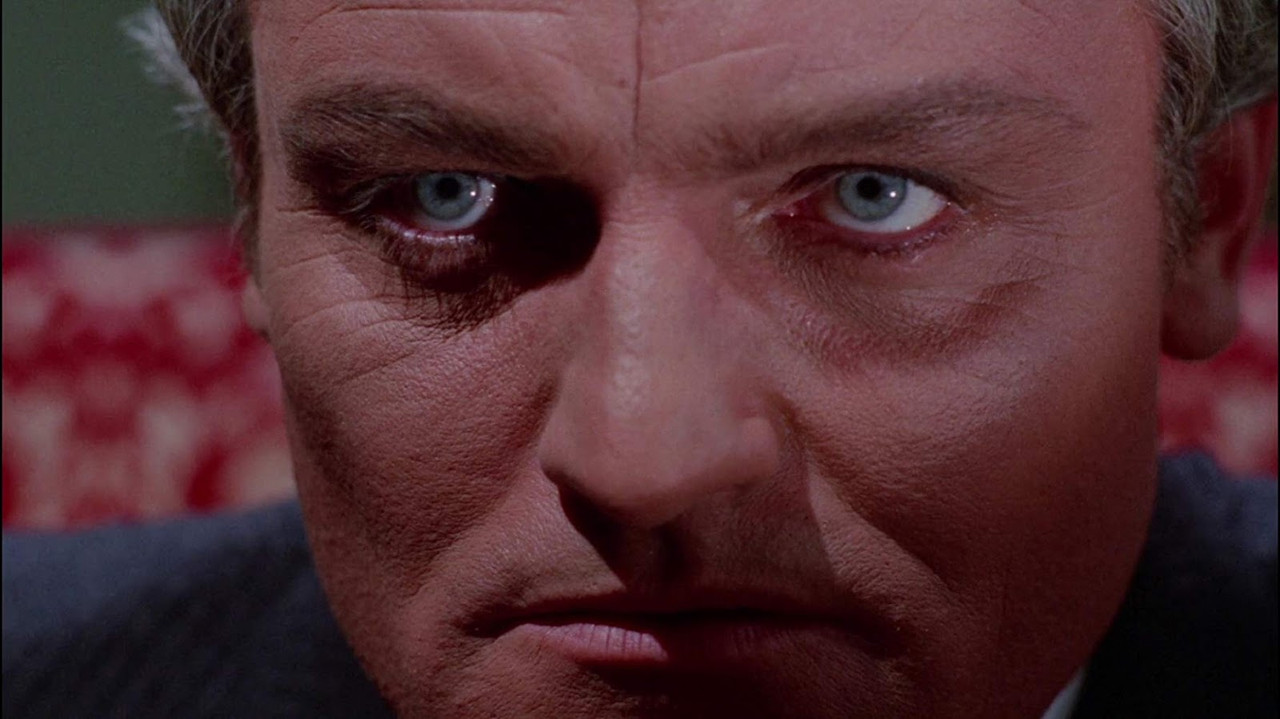
The menacing Mocata (Charles Gray). DP: Arthur Grant.
Willi Tobler und der Untergang der 6. Flotte [Willi Tobler and the Decline of the 6th Fleet] (Alexander Kluge, 1969)
Apr
27

One of many many handmade, overly complicated title cards. The date is May/June 42. DPs: Dietrich Lohmann, Thomas Mauch & Alfred Tichawsky.
And November 9, January 14, and January 21.
Két félidő a pokolban [Two Half-Times in Hell] (Zoltán Fábri, 1961)
Apr
20
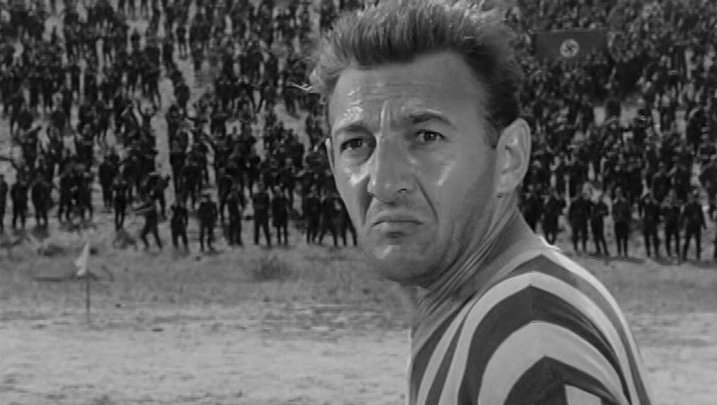
A sour looking player with a flood of Nazis coming towards him. DP: Ferenc Szécsényi.
“Sir Thomas Sheridan, Jacobite military secretary. Suffering advanced debility and loss of memory. Former military engagement, 56 years ago. Sir John MacDonald, Jacobite captain of cavalry. Aged, frequently intoxicated, described as 'a man of the most limited capacities.' John William O'Sullivan, Jacobite quartermaster general. Described as 'an Irishman whose vanity is superseded only by his lack of wisdom.' Prince Charles Edward Stuart, Jacobite commander in chief. Former military experience: 10 days at a siege at the age of 13.”Culloden (Peter Watkins, 1964)
Apr
16
1746
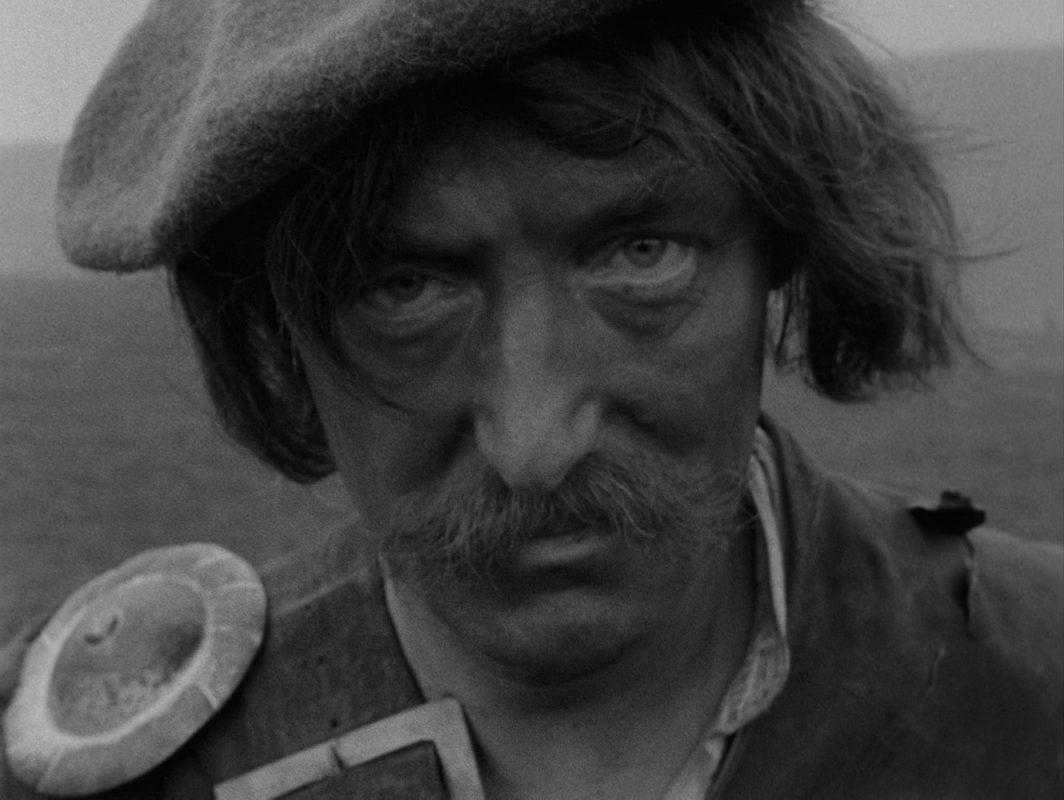
One of the clansman. The look in his eyes foreshadows the Vietnam War this films comments on. DP: Dick Bush.
– narrator
Drylanders [Un autre pays] (Don Haldane, 1962)
Apr
14
Great Depression

A woman runs from one wooden house to the other, barely visible in the dust whirling up around her (via). DP: Reginald H. Morris.
A film set during the Great Depression (or set in Oklahoma) on the date John Steinbeck's The Grapes of Wrath was published in 1939.
A man who returns from the Boer War decides to become a wheat farmer, but – like so many others in North America – falls victim to the Dust Bowl.
Les demoiselles de Rochefort [The Young Girls of Rochefort] (Jacques Demy, 1967)
APr
10
Siblings Day
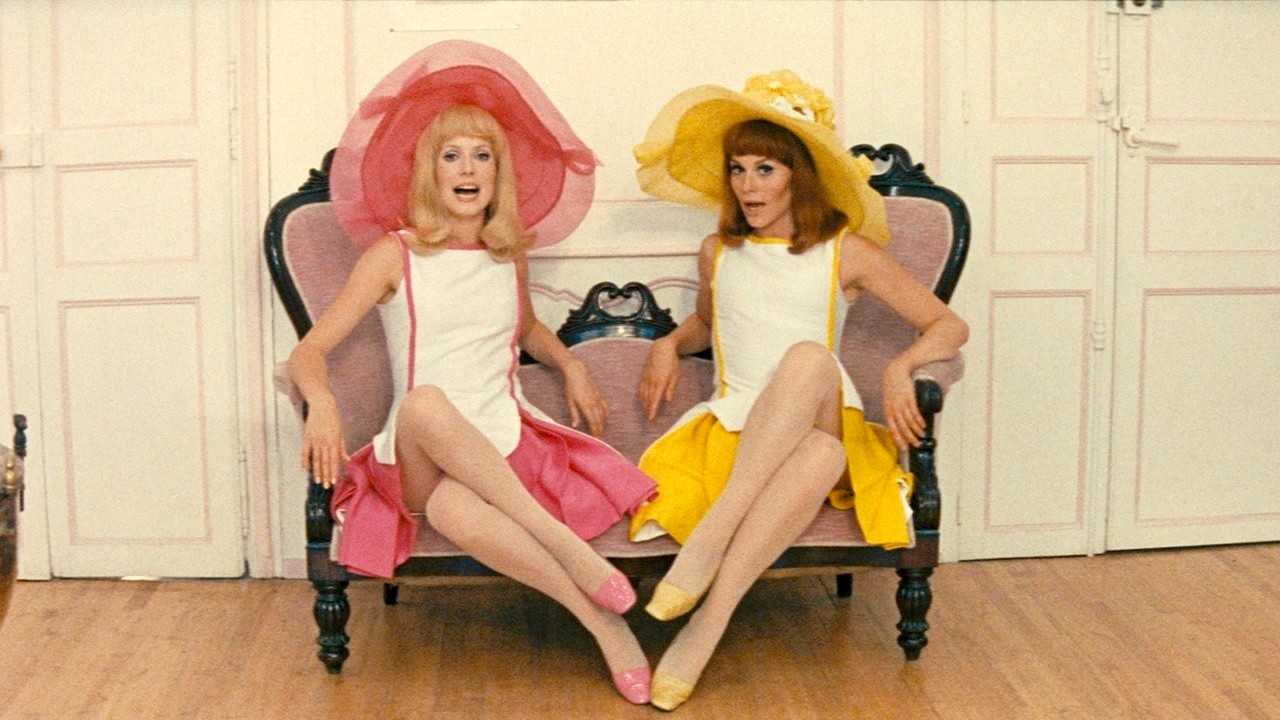
Sisters Delphine and Solange Garnier mid-song, played by real-world sisters Catherine Deneuve and Françoise Dorléac. DP: Ghislain Cloquet.
Siblings as main characters for Siblings Day (USA/Canada)
– Delphine & Solange
“With bar hostesses, there's a type who are likely to be murdered.”みな殺しの霊歌 [Minagoroshi no reika / I, the Executioner] (Tai Katō, 1968)
Apr
3
1968
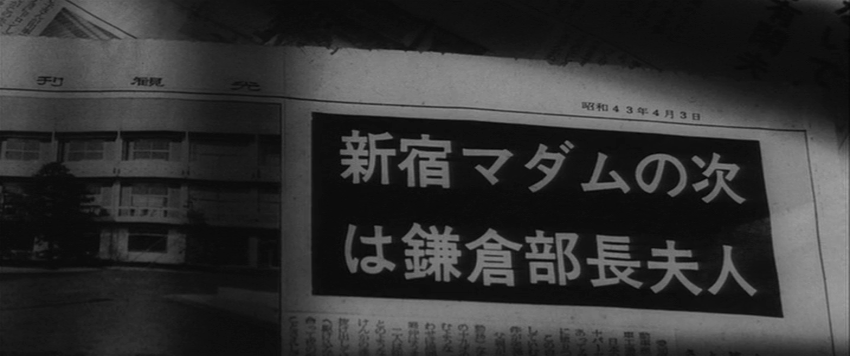
A newspaper headline for April 3, 1968: “COMPANY DIRECTOR'S WIFE NEWEST VICTIM”. DP: Keiji Maruyama.
Les yeux cernés [Marked Eyes] (Robert Hossein, 1964)
Apr
2
1964
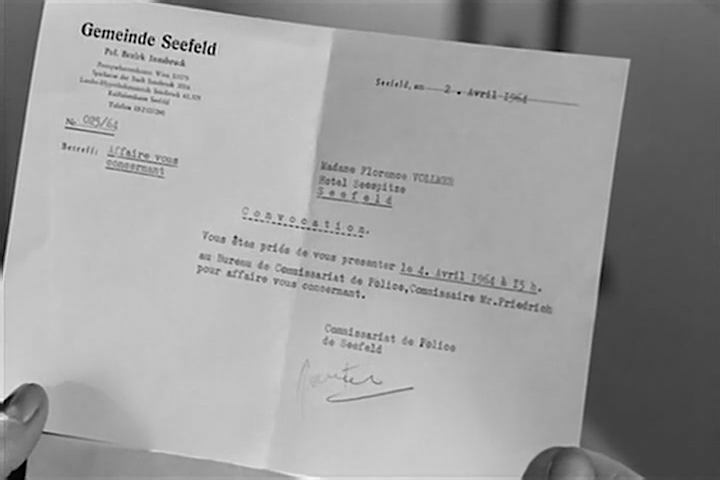
A typed request on official stationary dated April 2, requesting to show up at the police precinct on April 4, 1964. DP: Jean Boffety.